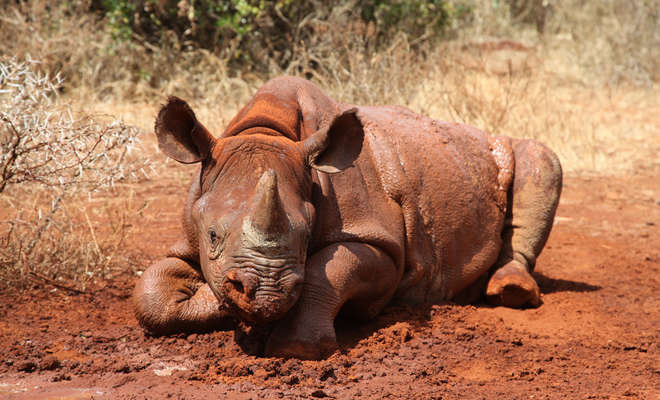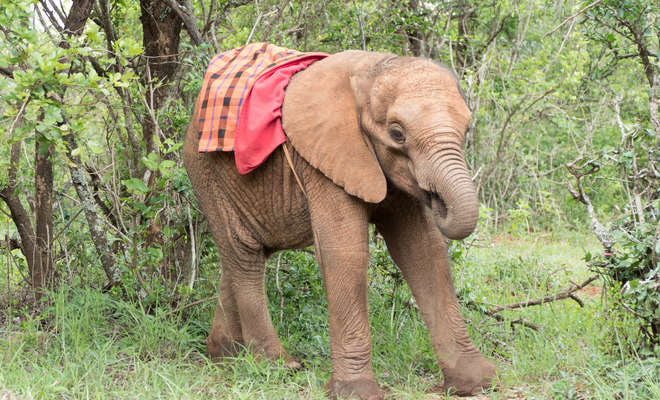Animal Conservation at North Georgia Wildlife Park-Home of Wildlife Wonders
|
Conservation is an important part of North Georgia Wildlife Park's mission to care, connect and conserve animals. As part of that mission the zoo is home to several endangered species, black and white ruff lemur, red ruff lemur, ring-tailed lemurs, new guinea singing dog, chinchillas, In addition to species listed as endangered, the zoo is home numerous animals that are threatened (the population is at risk of becoming endangered). Coati's, binturongs, wolves, black tail prairie dogs are currently on the list of threatened species.
At first glance, these animals may not seem to have much in common. But most species that become threatened or endangered share a set of common traits. For example, many species live in areas that are being destroyed by the encroachment of humans through farming or land development. Deforestation is another problem for endangered species, as animals are pushed farther and farther from their natural habitat. Habitat destruction is usually considered to be the number one threat to the wildlife of our world. In addition, some species fall prey to hunters looking to capitalize on an animal’s economic value, whether for fur trade, jewelry, meat, traditional folk medicine, cosmetics or souvenirs. |
|
Animals we have adopted through organizations we support
We are proud to partner with the below
projects, conservation and organizations.
our care connect conserve vision encompasses local national and worldwide!
projects, conservation and organizations.
our care connect conserve vision encompasses local national and worldwide!
Local

Their mission is "to help homeless and low-income families achieve sustainable independence. recognize that poverty is a complex problem that requires a multifaceted response. Responding by integrating educational outreach, smart programming, effective policies, and the hands-on work of thousands of volunteers. We provide food, shelter, and support services for homeless families. We provide advice and advocacy for at-risk families to prevent their becoming homeless. And we educate people about poverty and the means to combat it." https://familypromise.org

"Creating communities where people of all abilities are valued, included and empowered."
https://connectabilityinc.org/
https://connectabilityinc.org/
National
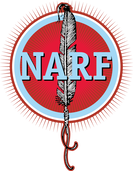
Indian preserve project - Boha tribe. "American Indian and Alaska Native tribes have existed for thousands of years. NARF’s foremost priority is to protect and secure continued tribal existence. NARF focuses on preserving tribes’ sovereignty — their political status and legal rights as governments. Tribal sovereignty pre-dates the existence of the United States of America and the United States recognizes tribal sovereignty in treaties, acts of Congress, Executive Orders, and court case law. NARF helps tribes maintain their longstanding government-to-government relationships with the United States, or, in the case of unrecognized or terminated tribes, to establish or re-establish such a relationship. NARF also helps tribes forge government-to-government relationships with state and local governments."
https://www.narf.org/our-work/preservation-tribal-existence/
https://www.narf.org/our-work/preservation-tribal-existence/
International

"Wildlife Warriors inspires children to champion for endangered wildlife and be stewards of their environment."
https://wildlifewarriorsafrica.org/home/
https://wildlifewarriorsafrica.org/home/

"The Sheldrick Wildlife Trust operates an orphan elephant rescue and rehabilitation program in Kenya. As one of Africa’s oldest wildlife charities and a leading conservation organization, the Sheldrick Wildlife Trust (SWT) embraces all measures that complement the conservation, preservation and protection of wildlife."
https://www.sheldrickwildlifetrust.org/
https://www.sheldrickwildlifetrust.org/

We support the Ecuador family scholarship. "The least-reached people used to be hidden in deep forests and jungles. So we went to the forests and jungles. Today, they’re hidden in the slums of the world’s greatest cities and in the high rises of affluent capitals. So whether you want to reach the ultra-rich, the blue-collar workers or the poor and oppressed, today you go to the cities. In the world’s least-reached marketplaces, great need — and great opportunity — awaits."
https://crossworld.org/
https://crossworld.org/
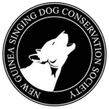
"The New Guinea Singing Dog Conservation Society (NGSDCS) was founded in 1996 by Janice Koler-Matznick to insure the continued viability & health of captive and wild New Guinea Singing Dogs (NGSD) through research and education. The NGSDCS funds field research and scientific study of NGSDs in their natural habitat on the island of New Guinea."
https://ngsdconservation.org/home
https://ngsdconservation.org/home

"The Cheetah Conservation Fund is a research and lobby institution in Namibia concerned with the study and sustenance of the country's cheetah population, the largest and healthiest in the world. Its Research and Education Centre is located 44 kilometers east of Otjiwarongo. Cheetah Conservation Fund’s holistic conservation strategy is the key to success in saving the cheetah and its ecosystem. CCF works to develop best practices that benefit the entire ecosystem upon which the cheetah depends. CCF’s programs address the concerns for wildlife populations and the human communities that share the landscape."
https://cheetah.org/
https://cheetah.org/

"The International Rhino Foundation is a Texas-based charity focused on the conservation of the five species of rhinoceros: the White Rhinoceros and Black Rhinoceros in Africa; the Indian Rhinoceros, Javan Rhinoceros and Sumatran Rhinoceros in Asia."
https://rhinos.org/
https://rhinos.org/
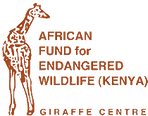
"The Giraffe Centre is the creation of the African Fund for Endangered Wildlife (A.F.E.W. Kenya), a Kenyan non-profit organization. Our main purpose is to educate Kenyan school children and youth on their country’s wildlife and environment, as well as give local and international visitors an opportunity to come into close contact with the world’s tallest species, the giraffe."
https://www.giraffecentre.org/
https://www.giraffecentre.org/
Partner Organizations
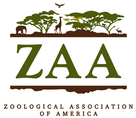
"Providing Communities with Conservation, Education, and Family Recreational Experiences. The Zoological Association of America (ZAA) is a non-profit membership-based accrediting organization dedicated to responsible wildlife management, conservation, and education. The ZAA upholds the highest level of professional standards in animal welfare, safety, and ethics."
http://zaa.org/
http://zaa.org/

"To protect and advance the Constitutional and private property rights of law abiding animal owners, animal-related businesses, sportsmen, and agricultural concerns legally, legislatively, and culturally nationwide."
https://www.thecavalrygroup.com/
https://www.thecavalrygroup.com/

"American Humane is committed to ensuring the safety, welfare and well-being of animals.
For more than a hundred years American Humane has been first in promoting the welfare and safety of animals and strengthening the bond between animals and people."
https://www.americanhumane.org/
For more than a hundred years American Humane has been first in promoting the welfare and safety of animals and strengthening the bond between animals and people."
https://www.americanhumane.org/

"A non-profit organization based in the United States with a mission to conserve wild felines through educational opportunities, responsible ownership and advocacy."
https://www.felineconservation.org/
https://www.felineconservation.org/

We partner with them in the seed ball campaign and the wildlife partners. "We focus on four types of programs for communities living alongside wildlife across Kenya and Tanzania: Wildlife Warrior Program, Nature Conservation, Medical Support and School Support."
https://landandlife.foundation/
https://landandlife.foundation/
|
Other conservation projects we recommend and support
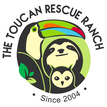
Saving sloths together. Toucan rescue ranch, the sloth sanctuary.
"The Toucan Rescue Ranch’s (TRR) mission is to rescue, rehabilitate, and release Costa Rican wildlife. TRR works with a model that focuses on conservation, education, and research to ensure a brighter tomorrow for native wildlife." https://toucanrescueranch.org 
Kids Saving the Rain forest.
"Founded by two 9 year old girls in 1999 for the purpose of educating people around the world about the ecological importance of the rainforest, to set-up programs to preserve and protect the rainforest and its wildlife. " https://www.kidssavingtherainforest.org 
Project Lydia
"The project helps local widows and abandoned women overcome adversity and thrive in every area of their lives. PROJECT LYDIA teaches skills, provides a spiritual support system, and opens doors for the women to support their families. The women meet weekly to work on projects together which are sold around the world." www.projectlydia.org |
OTHER FACTORS THAT THREATEN A SPECIES INCLUDE:
Restricted distribution – an animal lives in only one small place in the world, so one disaster could prove to be devastating to a species.
Migration across international boundaries – species protection requires cooperation from different governments, which is often difficult to achieve. Adverse to humans – animals may be unable to live and breed in environments that are becoming more populated by humans. Long gestation period or low birth rate – the black rhinoceros, for example, has a gestation period of 16 months and only has one calf at a time. Inability to adapt – the animals are unable to survive new factors in their environment, such as chemicals, noise, or air and water pollution. Pet trade – animals that are popular pets, such as parrots, often die in shipping or because of neglect or abuse. Domination by an introduced species – sometimes a new species is a predator with no natural enemies and it destroys an existing animal population. The fact is, in our modern world, many factors threaten animals. And once an animal is extinct, it’s gone forever. At North Georgia Zoo we take our mission of conservation very seriously. We know it is important to protect endangered species and help them breed, encouraging the survival of the species. We also realize a huge part of this is to create awareness and connect the future generation with animals so they to will care and respect animals and their environment and to ensure their are wild places left for animals for many generations come. Remember, as a Zoo Member you can help support North Georgia zoo conservation efforts. |

